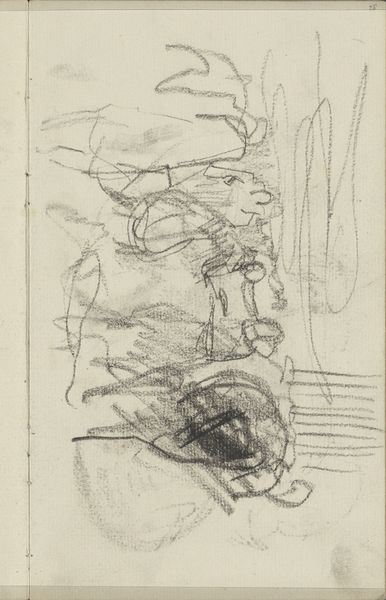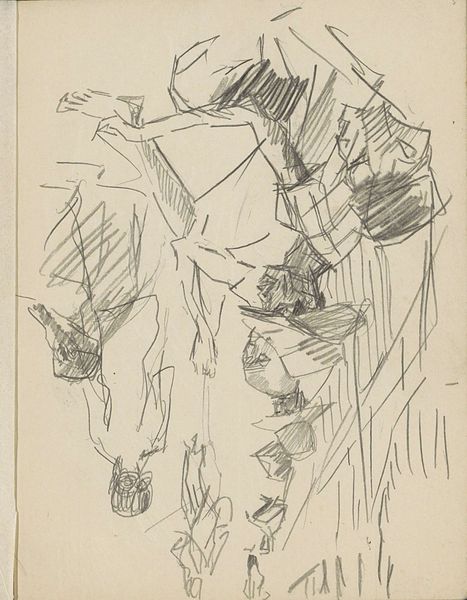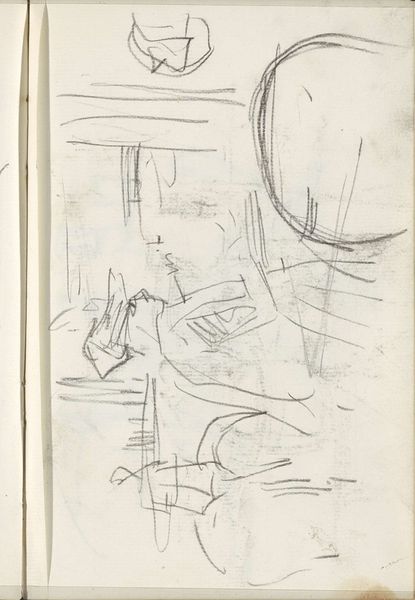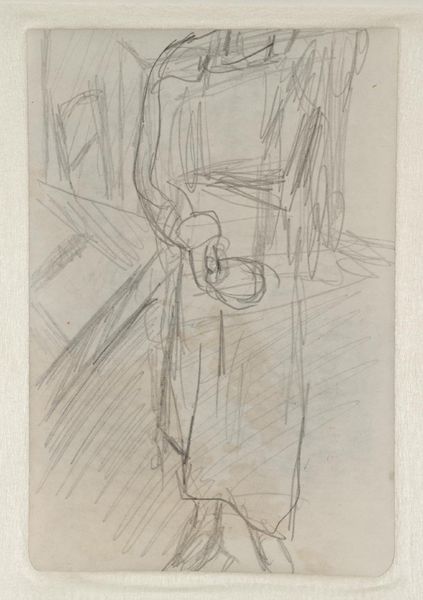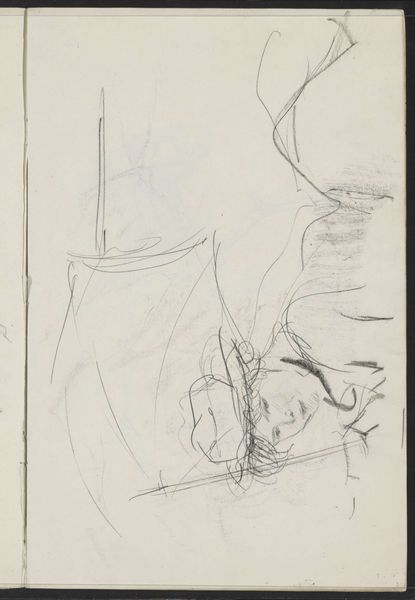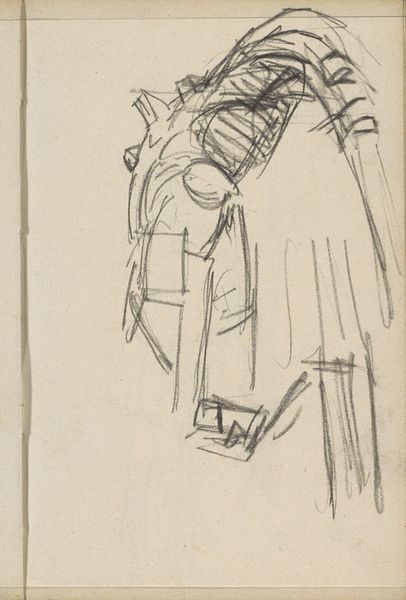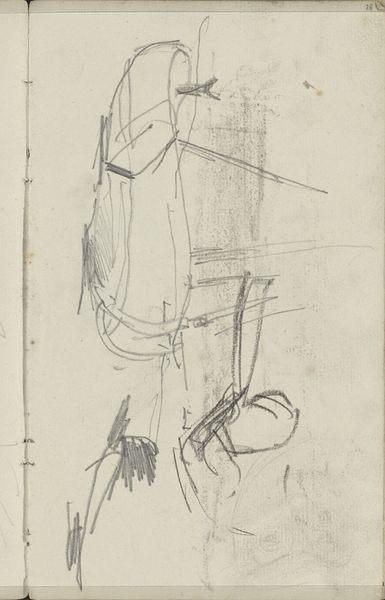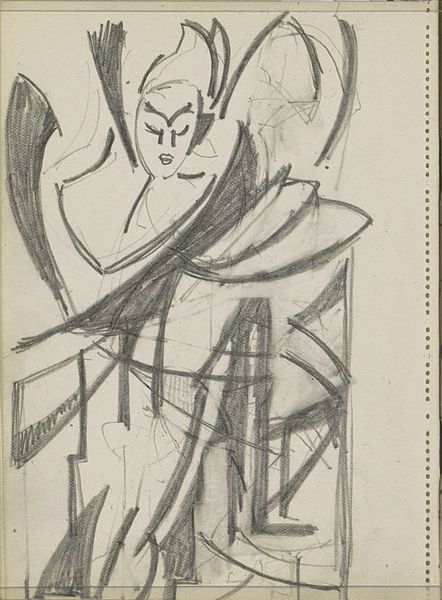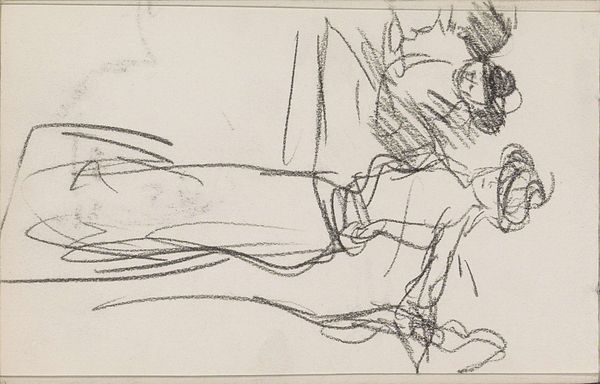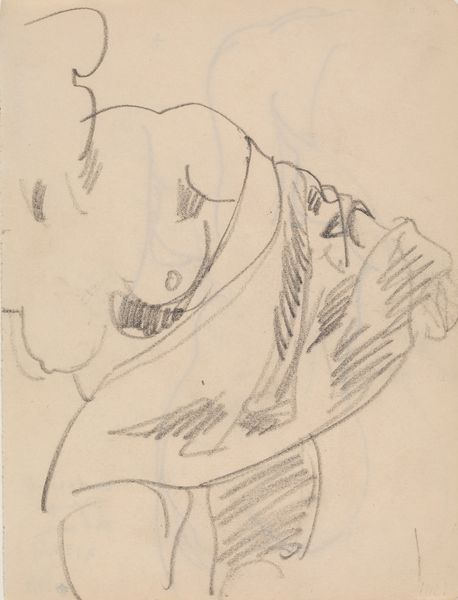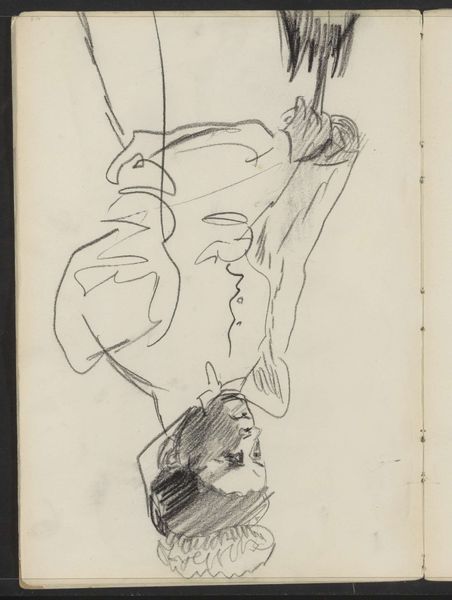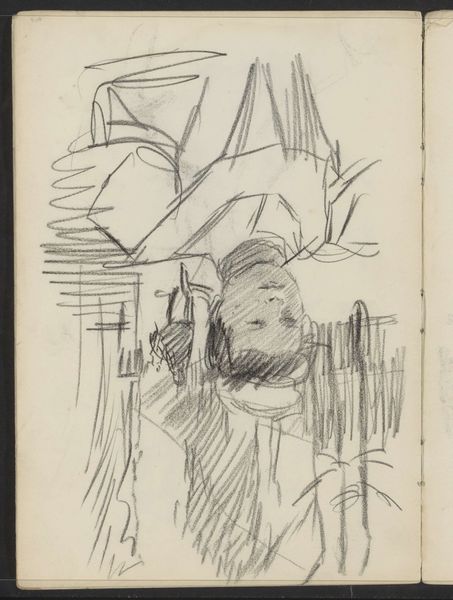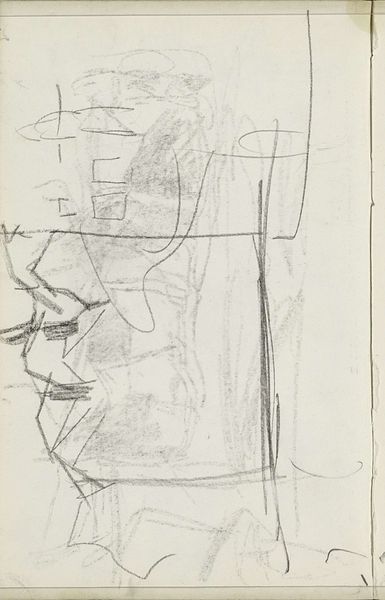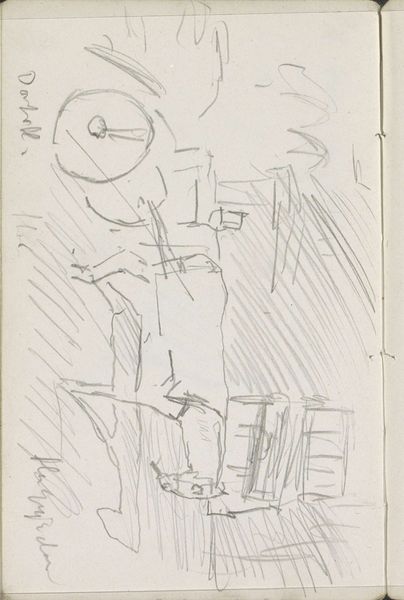
Man aan een tafel in een interieur, mogelijk Nehemia de Lieme c. 1925s
0:00
0:00
isaacisraels
Rijksmuseum
drawing, pencil
#
portrait
#
drawing
#
quirky sketch
#
pen sketch
#
figuration
#
personal sketchbook
#
idea generation sketch
#
sketchwork
#
ink drawing experimentation
#
pen-ink sketch
#
pencil
#
sketchbook drawing
#
sketchbook art
#
modernism
#
initial sketch
Copyright: Rijks Museum: Open Domain
Editor: This is Isaac Israels's "Man at a Table in an Interior, Possibly Nehemia de Lieme," created around the 1920s. It's a drawing. I’m struck by how quickly it seems to have been captured – the energy of the lines, like a fleeting impression. What do you see in this piece? Curator: Immediately, the composition commands attention. Note how Israels utilizes the skeletal structure of lines, barely weighted, to define form. The swift, almost impulsive, strokes generate a palpable sense of movement and transience. What does the grid bring to this composition? Editor: The grid behind him? I suppose it brings some order or structure. It provides a geometric counterpoint to the loose rendering of the figure, maybe adding a layer of spatial complexity? Curator: Precisely. The tension between the geometric rigidity and the fluidity of the portrait generates visual interest. Furthermore, the varying pressure of the pencil imbues the image with depth and shadow. Notice the concentrated density of lines defining the subject's face and hands, drawing our eye to points of interest. How does this contribute to your reading? Editor: That makes sense. I hadn't really noticed the differences in the pencil strokes themselves. I see what you mean about my eyes being drawn to those specific parts now. So it’s almost like the artist created a subtle hierarchy using the pencil’s materiality? Curator: An astute observation. It's through the mastery of line, pressure, and form that Israels constructs meaning and elicits our engagement. The work becomes less about accurate representation and more about capturing a fleeting moment, an essence. Editor: It's interesting to consider it less about the person and more about the moment. Thinking about the formal aspects of the drawing really changed my initial impression. Curator: Indeed, by understanding the formal elements, we are better equipped to decode the essence of the artwork.
Comments
No comments
Be the first to comment and join the conversation on the ultimate creative platform.
